Strengthening Rural Industries to Boost Income Growth in Guizhou Province, the People’s Republic of China
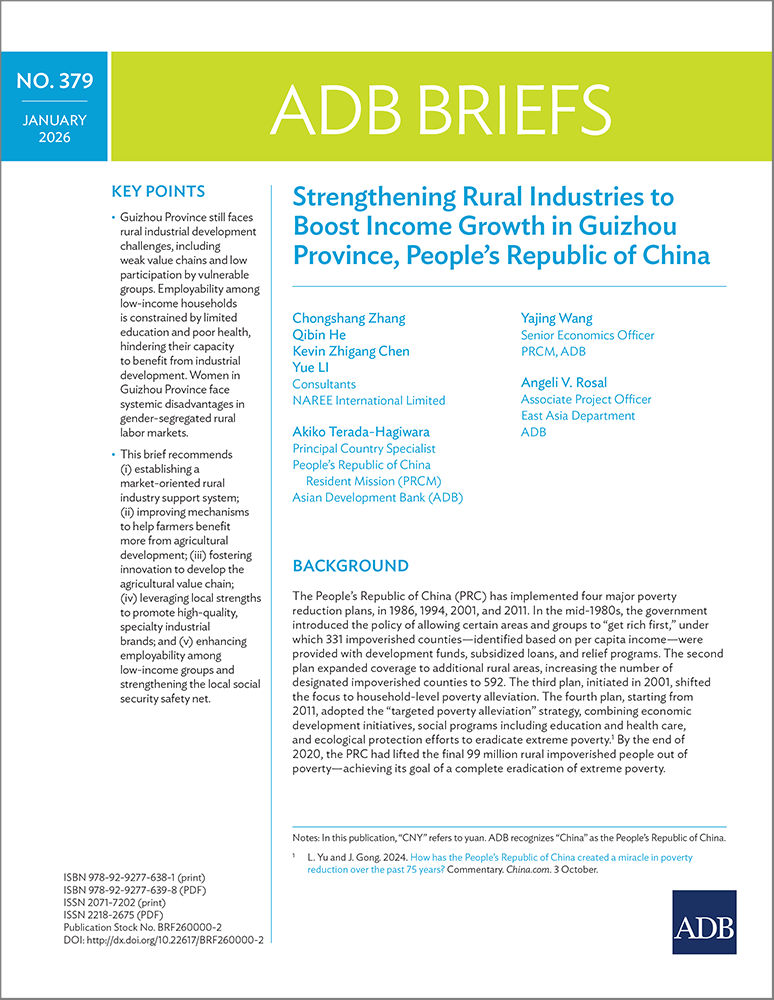

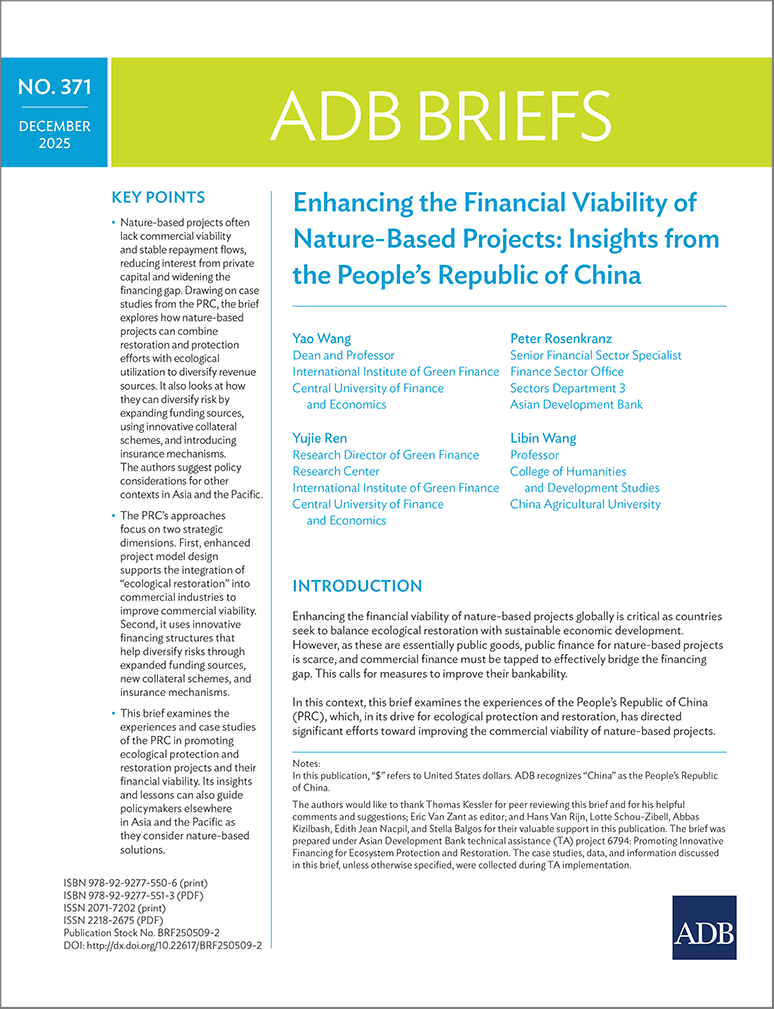


Speakers and presenting participants of the regional workshop, “Driving Change: Lessons from Breakthroughs in Innovative and Sustainable Finance in the PRC,” held in Beijing. The photo includes experts from the People’s Republic of China and representatives from Azerbaijan, Georgia, Indonesia, Mongolia, the Philippines, Thailand, Uzbekistan, and Viet Nam, who shared experiences and insights on advancing sustainable finance.
BEIJING, PEOPLE’S REPUBLIC OF CHINA (23-24 October 2025) – The two-day regional workshop, Driving Change: Lessons from Breakthroughs in Innovative and Sustainable Finance in the PRC, brought together participants from Azerbaijan, Georgia, Indonesia, Mongolia, the Philippines, Thailand, Uzbekistan, Viet Nam, and the People’s Republic of China. Organized by the Asian Development Bank (ADB) in Beijing, the event convened government officials, regulators, and financial institutions to exchange practical experiences in advancing green and transition finance.
Across eight sessions, participants discussed China’s experience in developing policy frameworks, taxonomies, and innovative financial instruments such as sustainability-linked loans and transition finance. They also examined disclosure practices, digital tools, and sectoral approaches—including agriculture and manufacturing—that can inform strategies in other countries.
Participants learned from China’s pioneering pilots and shared their own policy and market experiences, offering perspectives on how sustainable finance principles can be adapted to different economic contexts. Discussions underscored three key messages: credibility and clear standards are essential to build investor trust, solutions must reflect each country’s unique realities, and regional collaboration can help scale successful innovations.
The workshop concluded with a shared recognition that sustained cooperation and knowledge exchange are critical to accelerating the region’s transition toward sustainable and inclusive growth.
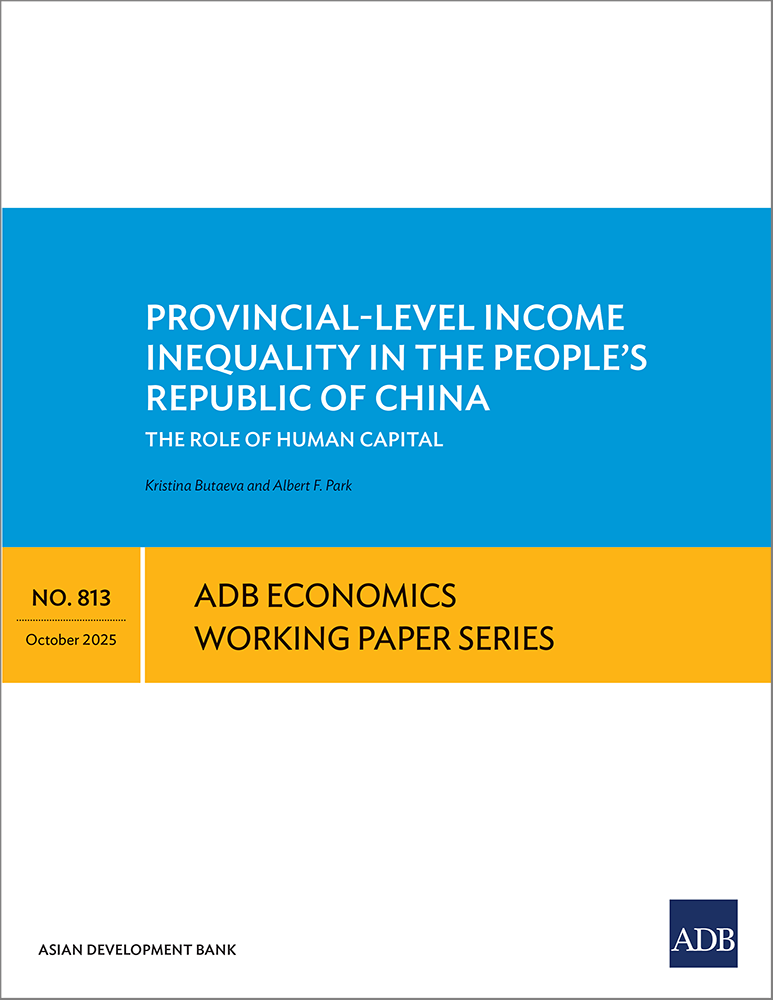
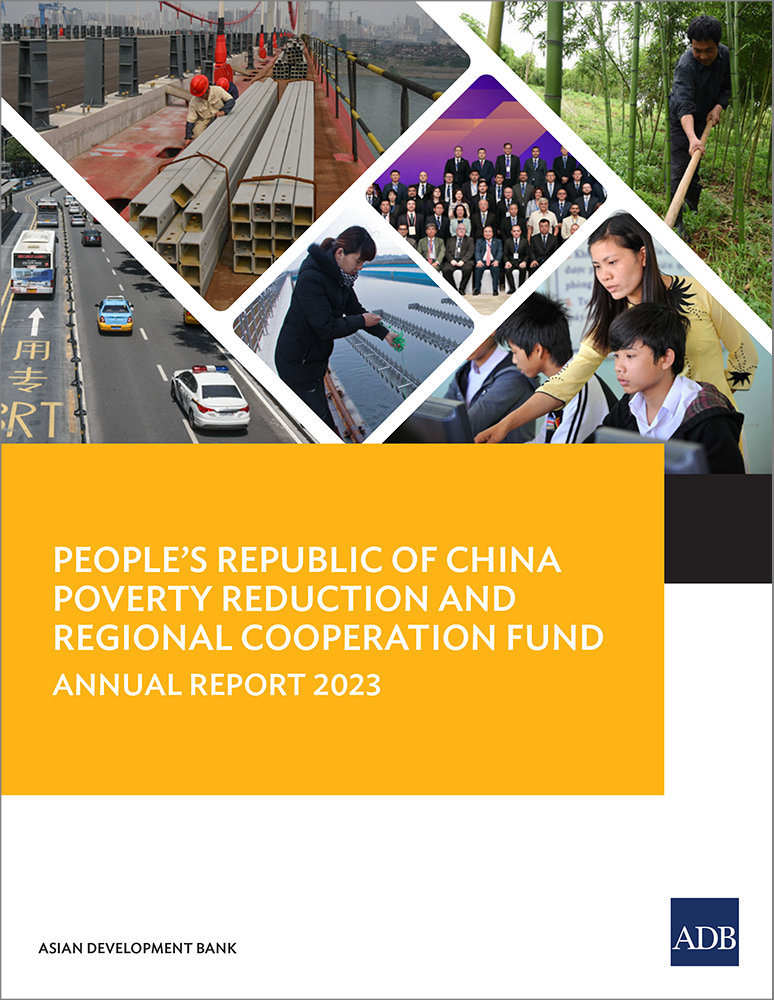

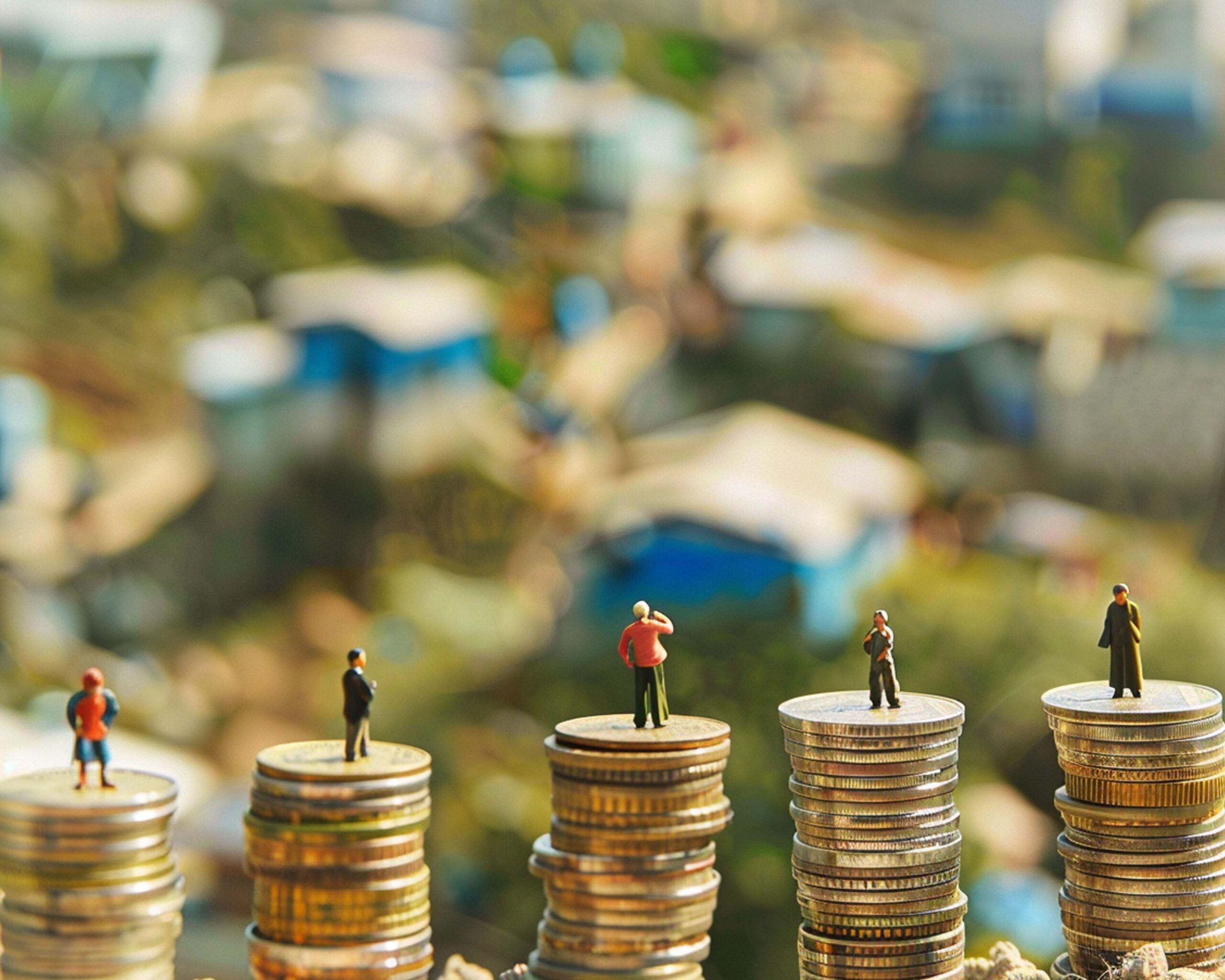
In an increasingly interconnected world, regional public goods (RPGs) provide a compelling framework for countries to cooperate for sustainable development. RPGs include a wide array of assets and services to promote economic growth, social welfare, and environmental sustainability.
Public goods can be placed in three main categories: economic public goods, social public goods, and environmental public goods.
Economic public goods are those that are directly related to economic growth and industrialization, such as infrastructure for transportation, communication, energy, and irrigation systems. Economic institutions, regulatory frameworks, and government macroeconomic policies can also be included.
Social public goods include legal systems, public health and epidemic prevention, social safety nets, public security, museums, public libraries, and parks.
Environmental public goods include environmental protection systems and policies, ecological restoration, renewable energy development, and climate change mitigation and adaptation programs.
Education, scientific research, technology, innovation, and all kinds of knowledge are all linked to these public goods.
Developing countries share common interests and needs for public goods because they face similar problems at similar stages of development. Often, they have common goals and priorities for economic development, such as poverty relief, industrialization, increasing productivity, urbanization, and reduction of income disparities. Here, cooperation between developing countries may create important regional public goods for joint development.
For example, regional and international transportation as well as communication networks improve connectivity among countries, enlarge the market for all, and in turn, improve the efficiency of national infrastructure systems.
Regional trade and investment agreements facilitate economic development and cooperation of the countries involved in the treaty. The Regional Comprehensive Economic Partnership treaty is an example of how all parties involved can benefit through regional cooperation.
Meanwhile, regional public health systems and epidemic prevention mechanisms are key to minimizing the pandemic risks for people in the region and beyond.
Regional networks can also play an important role in natural disaster management and mitigation as well as cross-border environment protection and ecological preservation (one example would be ADB’s Regional Flyway Initiative).
The Paris Agreement is a global public good that aims to tackle the challenge of climate change. However, its benefits can truly be realized through regional cooperation. A specific area for regional collaboration is energy transition through which governments can utilize latest technologies to reduce carbon emissions.
Global public goods can also be promoted through regional cooperation on cyber security and Artificial Intelligence (AI).
The provision of global public goods requires coordination between regional and global institutions to facilitate project designs, financing, and technical assistance. This facilitation can be done through a regional mechanism or within an international framework.
Knowledge sharing is imperative for joint development. Particularly essential is knowledge of recent development practices and experience in all countries, including policies implemented, technologies applied, and business models used and the problems that arise when facing new conditions. People from diverse backgrounds will benefit immensely through such knowledge exchanges. Every developing country, regardless of its size and levels of productivity, can offer some good experiences or lessons for others to learn and benefit from. A useful example is the influence of Bangladesh’s microfinance model.
The PRC is still a developing country, in terms of both gross national income per capita and industrial productivity. However, as a large economy, the PRC has a special responsibility to contribute to regional development.
Four important initiatives for economic development of the region deserve mention.
The first pertains to regional connectivity infrastructure (road, railway, ports, airports and telecommunications), which the PRC has facilitated. Better connectivity means greater market access and higher productivity, particularly for inland countries. The PRC-Europe rail route has greatly stabilized global supply chains in the wake of conflict disrupting vital shipping lanes in the Red Sea.
The second involves industrial development facilities, such as industrial parks. In recent years, the PRC has engaged in developing “two parks in two countries” mechanisms with Indonesia, Malaysia, Thailand, and Viet Nam, which provide mutual common goods for the companies from “the other country.”
The third initiative is the technology and business model for energy transition. Knowledge sharing in this regard will not only contribute to the battle against climate change, but also provide new ways to help countries increase their capacity for energy generation for the next stage of development.
The fourth initiative is cross-border environment protection and ecological system preservation for sustainable development. It is in the common interest of all countries in our region and beyond to prevent damage of our ecological systems.
In principle, all public goods are good and beneficial for everyone, one way or another. However, for countries at different stages of development, their priorities may be different.
For low-income countries, the most urgent need is more economic public goods related to their industrialization and economic structural upgrade, such as physical infrastructure and industrial facilities. Economic growth will enable these countries to finance their social and environmental projects through their own revenues and participate effectively in the provision of regional and global public goods.
Countries with higher incomes and productivity can help provide social and environmental public goods, such as on ecological restoration and climate change.
Financial resources from donor countries should be directed toward economic public goods, rather social and environmental projects in low-income developing countries. This will prevent developing countries from becoming reliant on international aid for long periods and instead, encourage them to develop their own financial strength to pay for social and environmental goods. “Infrastructure deficits” in developing countries should be interpreted as being part of broader deficits of economic public goods.
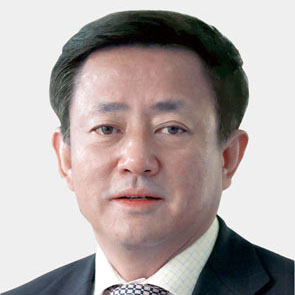
Director, National Economic Research Institute
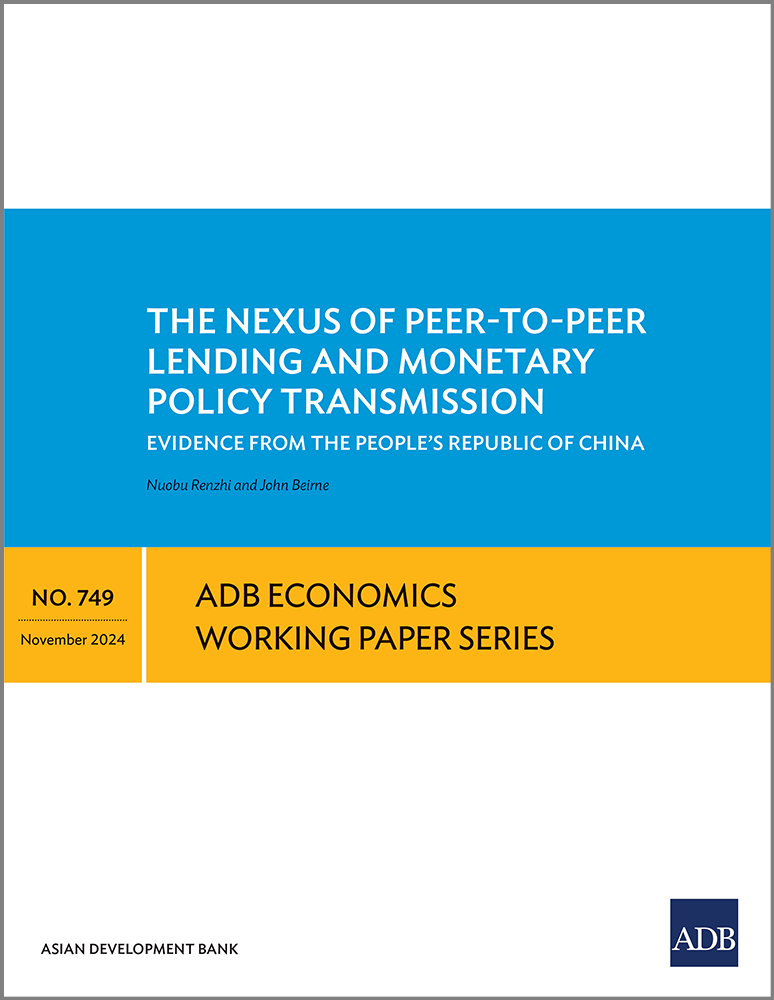
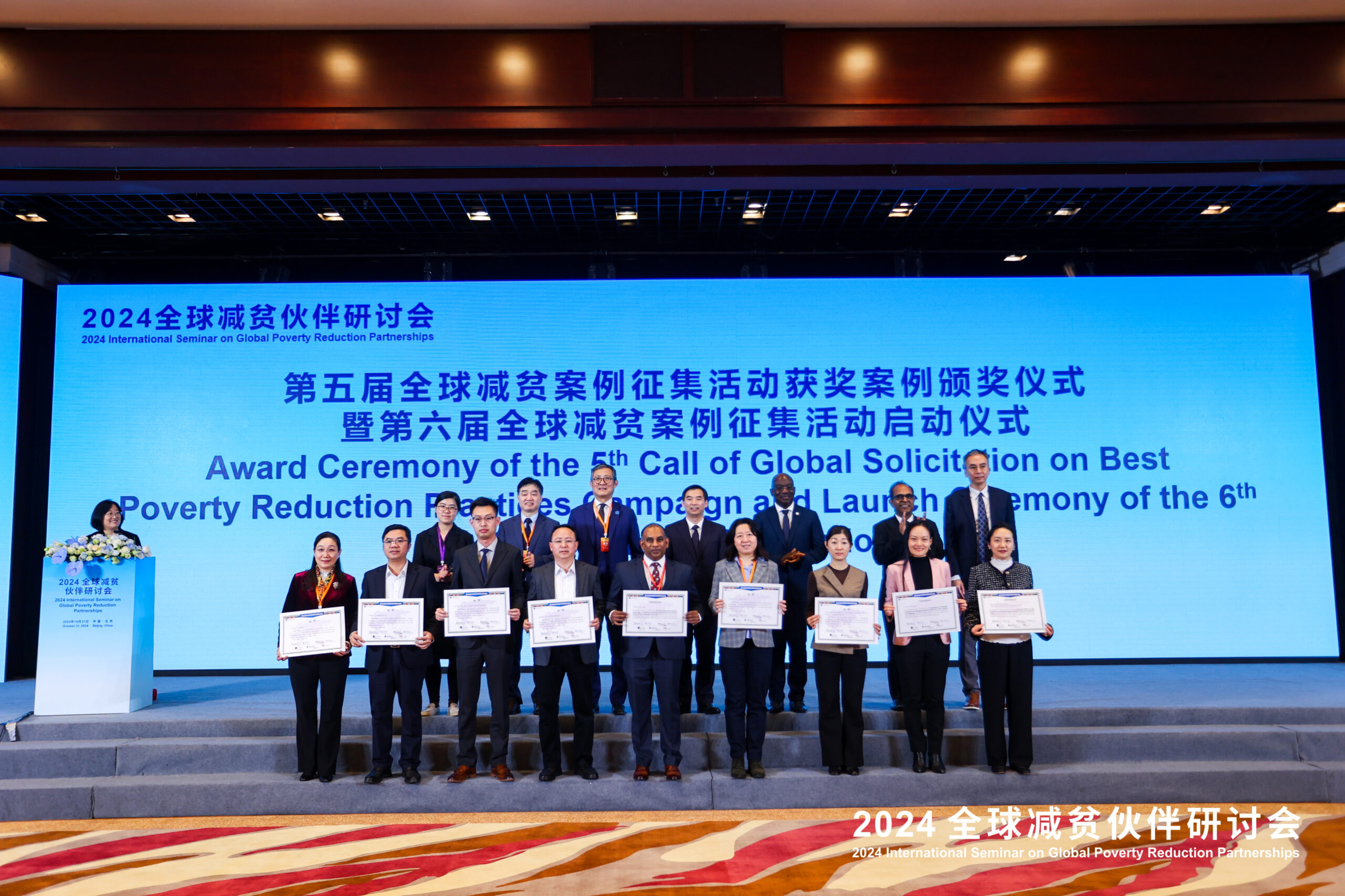

Individuals and representatives of organizations that submitted case studies during the fifth call of the Global Solicitation on Best Poverty Reduction Practices and other attendees pose with award certificates at the 2024 International Seminar on Global Poverty Reduction Partnerships held in Beijing on Oct. 31, 2024.
On 31 Oct, 105 exemplary case studies from the fifth call of the Global Solicitation on Best Poverty Reduction Practices were celebrated at the 2024 International Seminar on Global Poverty Reduction Partnerships in Beijing. During this event, the sixth round of solicitation was also launched.
Initiated in 2018 by the Asian Development Bank (ADB), the China Internet Information Center (CIIC), the International Poverty Reduction Center in China (IPRCC), the World Bank (WB), and three Rome-based UN agencies — the Food and Agriculture Organization of the United Nations (FAO), the International Fund for Agricultural Development (IFAD), and the World Food Programme (WFP) — the Global Solicitation on Best Poverty Reduction Practices aims to inspire individuals and organizations worldwide to submit case studies that can serve as valuable reference materials. This initiative also seeks to foster innovative global partnerships in poverty alleviation, leveraging the strengths of various stakeholders.
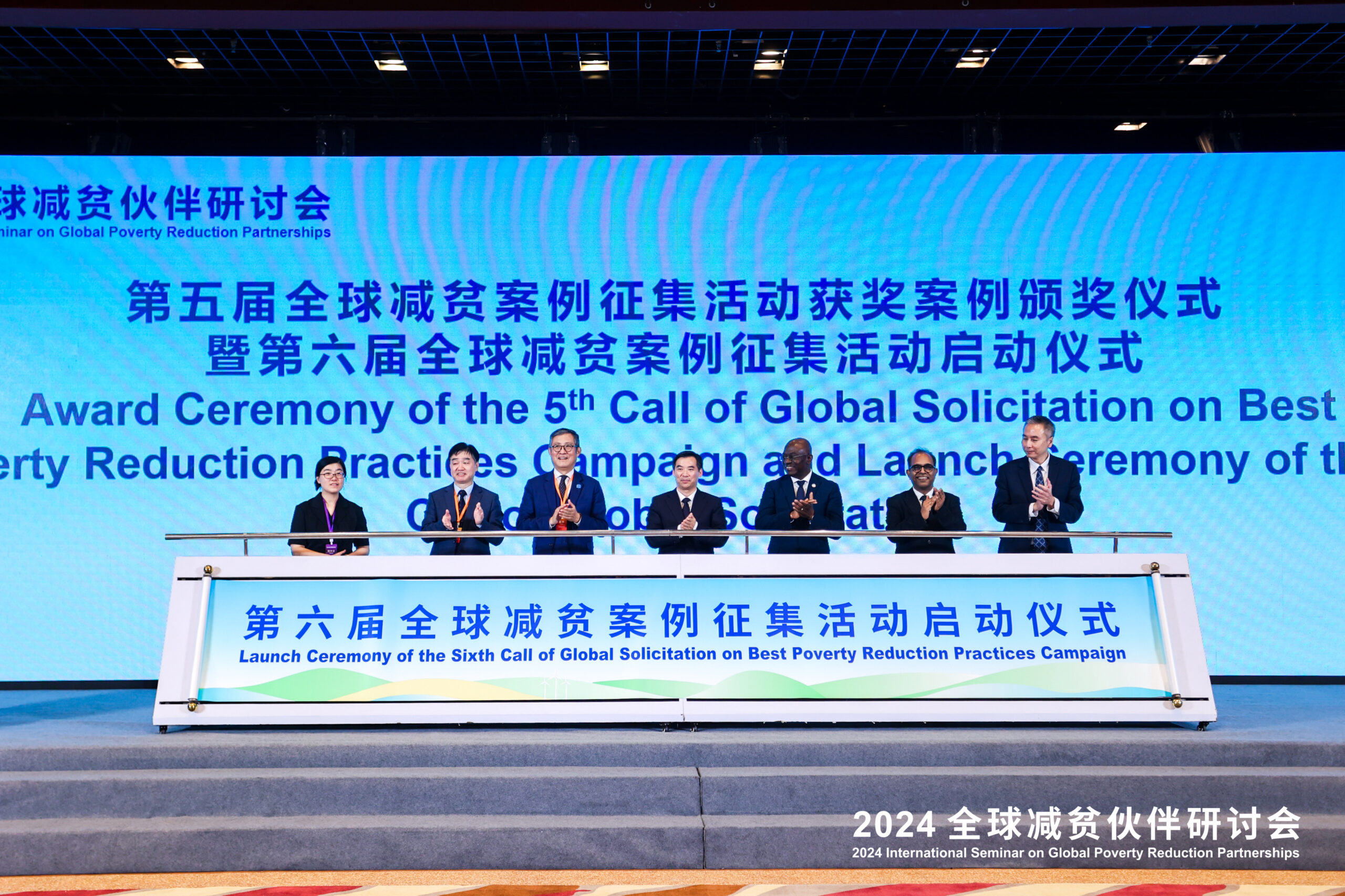
The sixth round of the Global Solicitation on Best Poverty Reduction Practices is launched at the ceremony.
The fifth call for submissions was launched in November 2023, generating 1,012 entries from 37 countries and regions, including Laos, Cambodia, Myanmar, Pakistan, Jordan, Spain, Germany, Greece, Ethiopia, Rwanda, Sao Tome and Principe, Burundi, the Kingdom of Tonga, Fiji and China. From these entries, the seven host institutions selected 105 best practices that are sustainable, operable, replicable, and based on practical scenarios. These selected ones provide valuable models and implementation strategies for those dedicated to poverty reduction efforts worldwide.
Reproduced from China.org.
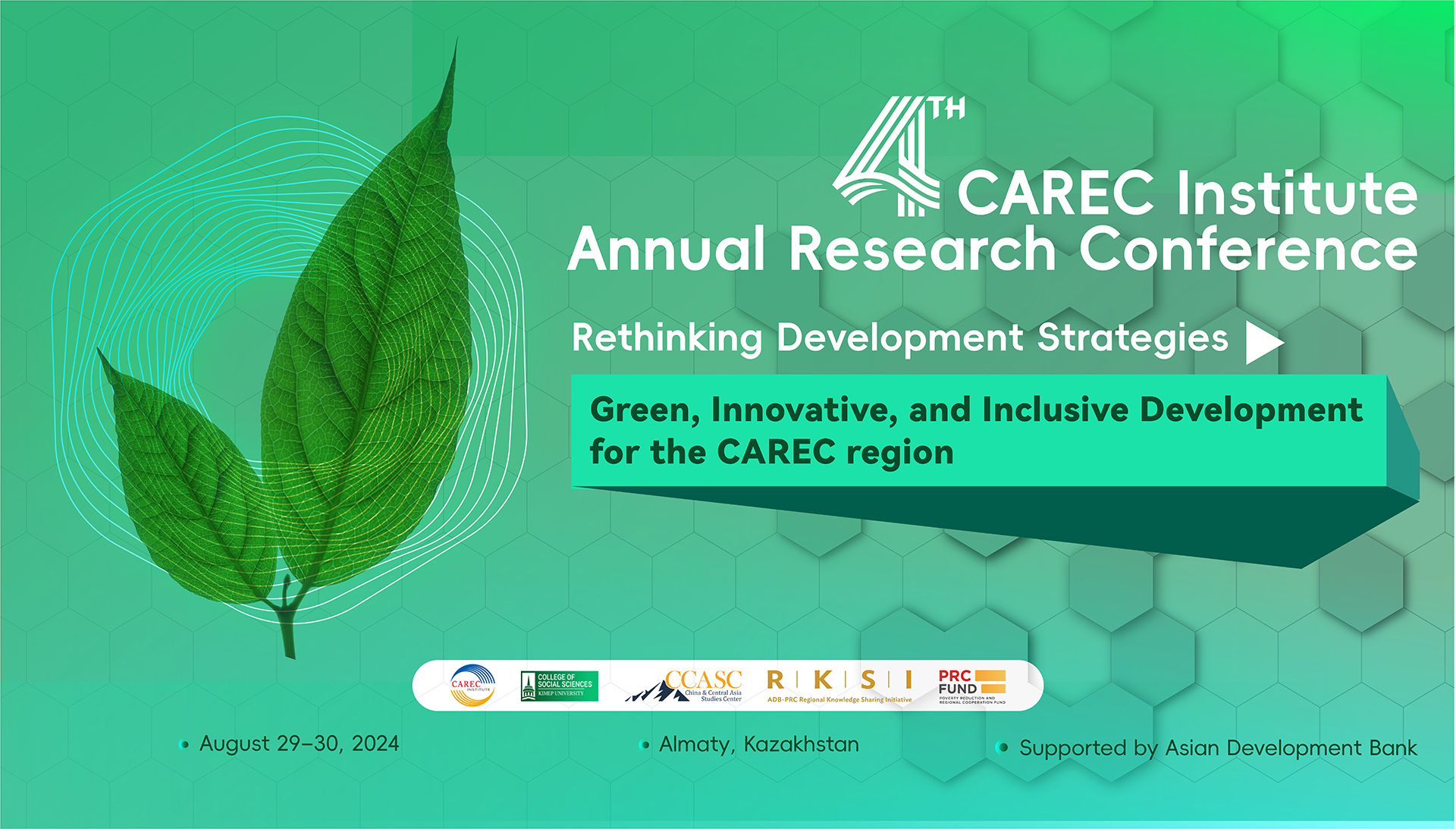
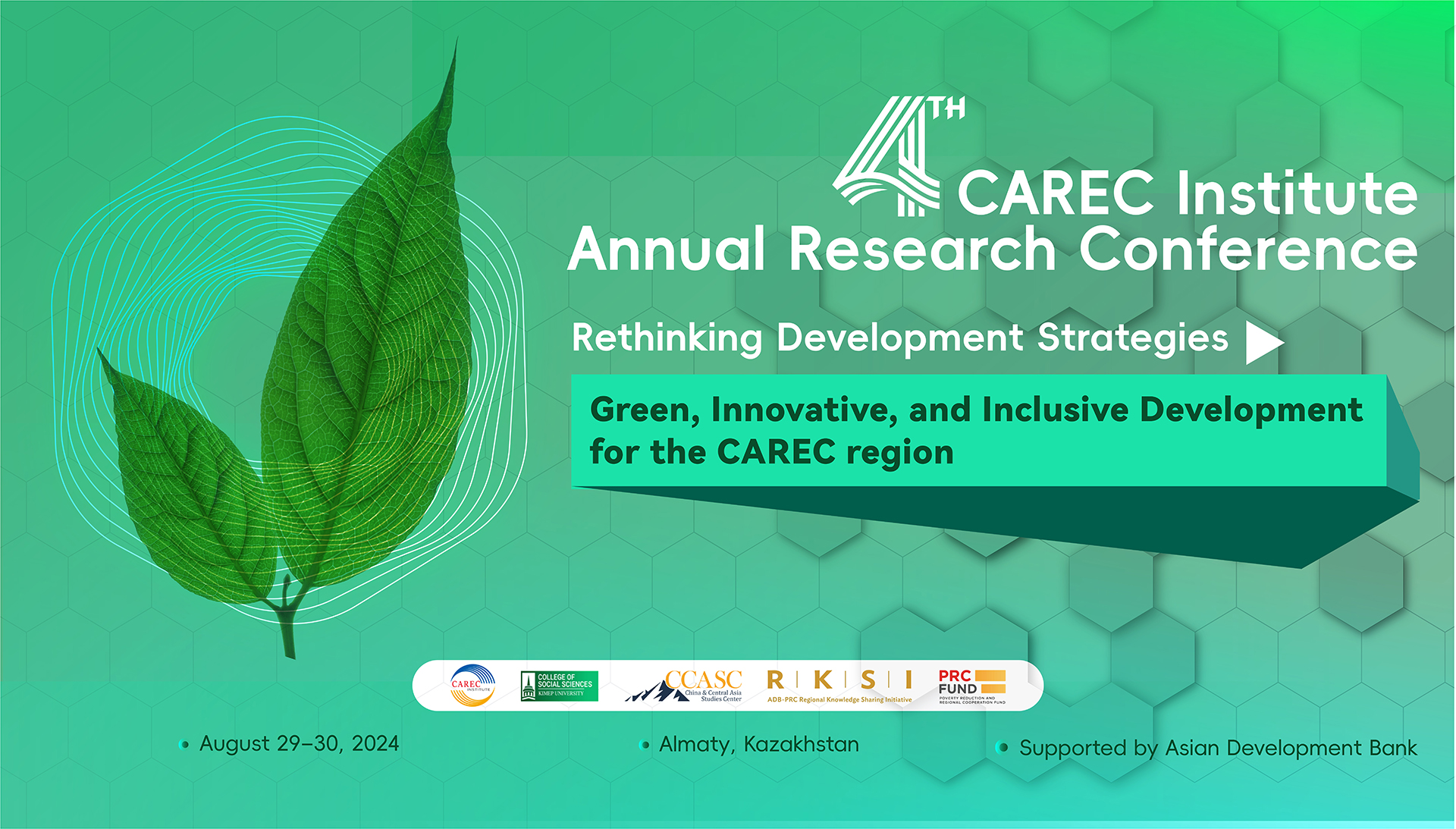
The Asian Development Bank (ADB) is proud to support the 4th Annual Research Conference of the CAREC Institute (CI), themed “Rethinking Development Strategies: Green, Innovative, and Inclusive Development for the CAREC Region.” This conference, co-organized by the College of Social Sciences and the China & Central Asia Studies Center at KIMEP University, along with the ADB-PRC Regional Knowledge Sharing Initiative (RKSI), will take place on August 29-30, 2024, in Almaty, Kazakhstan. The ADB’s involvement underscores its commitment to fostering sustainable and inclusive development in the CAREC region.
The primary objective of the conference is to connect research and policymaking, fostering regional development by systematically documenting policy-oriented research and creating narratives specific to the CAREC region. The event will showcase research findings, discuss their policy implications, and culminate in the publication of selected research in CI’s Annual Book and relevant journals.
By addressing regional developmental challenges, proposing innovative policy recommendations, and enhancing regional research cooperation, the conference aims to improve policy relevance and impact across the CAREC region. Comprehensive materials, including session details, speaker biographies, and presentation summaries, will be provided to all participants.
We look forward to your participation in this important event.
| Time | Session |
|---|---|
| 9.15–10.00 | Registration/CI Video to be screened |
| 10.00–11.00 | OPENING SESSION Opening Remarks Kabir Jurazoda, Director, CAREC Institute (CI) Damian Riviez, Vice President of Academic Affairs, KIMEP University Kadir Basboga, Senior Regional Integration& Trade Promotion Economist, Islamic Development Bank (IsDB) Keynote address Johannes F. Linn, Nonresident Senior Fellow, The Brookings Institution Group Photo |
| 11.00–11.30 | Coffee break |
| 11.30–13.00 | Parallel Session I: Energy/Renewable Energy/Sustainable Energy Hall #1, 2nd floor Moderator Vladislav Zavadskiy, Senior Energy Expert, CI Speakers:
Discussant: Ramil Shakirov, Head of the Training Center, Schneider Electric |
| Parallel Session II: Green Initiatives/Climate and Environment Moderator Asif Razzaq, Senior Research Specialist, CI Speakers:
Discussant: Shu (Grace) Tian, Senior Economist, Economic Research and Development Impact Department, ADB |
|
| Parallel Session III: Trade/Connectivity/CorridorsTrade/Connectivity/Corridors Moderator Ghulam Samad, Chief of Research Division, CI Speakers:
Discussant: Xiaotong Zhang, Academic Director at China and Central Asia Studies Center (CCASC) |
|
| 13.00–14.00 | Lunch |
| 14:00–15.30 | Parallel Session IV: Inequality and Inclusivity Moderator Ilhom Abdulloev, Chief of Capacity Building Division, CI Speakers:
Discussant: Alma Kudebayeva, KIMEP University |
| Parallel Session V: ADB-PRC RKSI Evidence from the CAREC Corridor Performance Measurement and Monitoring Database Moderator Akiko Terada-Hagiwara, Principal Country Specialist, East Asia Department, ADB Speakers:
Discussant: Max Ee, CPMM consultant |
|
| Parallel Session VI: Innovation/innovative solutions Moderator Hans Holzhacker, Chief Economist, CI Speakers:
Discussant: Nurgali Rakhmanov, President “Digital Society” NGO, S/GPP Policy Expert |
|
| 15.30–16.00 | Coffee break |
| 16.00–17.30 | Panel Session: Rethinking Development Strategies: Green, Innovative, and Inclusive Development for the CAREC region
|
| Time | Session |
|---|---|
| 10.00–10.10 | Special Session Introduction of the CAREC Institute Knowledge Products
|
| 10.10–10.30 | CI’s Book Launch “PROSPECTS FOR INCLUSIVE GREEN GROWTH AND SUSTAINABILITY IN THE CAREC REGION”
|
| 10.30–11.00 | CI and UNESCAP Digital and Sustainable Trade Facilitation Report Launch
|


The global economy is rapidly changing, driven by emerging technologies that promote resource efficiency, inclusivity, and environmental sustainability. Digital technologies play a crucial role in this transformation, offering solutions to challenges like poverty, healthcare, job creation, and environmental protection. The COVID-19 pandemic has accelerated the adoption of digital tools, demonstrating their potential to connect people and businesses even in crises.
The CAREC region, however, faces significant challenges in harnessing the benefits of the digital economy due to inadequate digital infrastructure and unclear regulations. To address these issues, the CAREC Secretariat, supported by the Asian Development Bank (ADB) and partnering with the CAREC Institute and UNESCAP, developed the CAREC Digital Strategy 2030. This strategy serves as a roadmap for accelerating digital transformation and unlocking the region’s potential.
The CAREC Institute, with support from ADB and other organizations, has conducted research and engaged policymakers in dialogues on digitalization. Recognizing the importance of digital economy, the People’s Republic of China has made significant strides, with its digital economy value reaching 6.5 trillion US dollars by 2021.
To further promote digital economy in the CAREC region, the CAREC Institute will collaborate with ADB, the CAREC Secretariat, and Chinese government entities to launch a capacity building program aimed at enhancing digital economy cooperation and promoting digital connectivity. This initiative aligns with the CAREC Digital Strategy’s vision and mission, seeking to equip member countries with the necessary tools and knowledge to realize the full potential of the digital economy for inclusive economic growth, social well-being, and enhanced regional competitiveness.
| Morning | Opening Ceremony
Moderator: Gong Sen, Director, Center for International Studies on Development and Governance (CiSDG), Zhejiang University |
| CAREC Digital Strategy 2030 (Online) Dorothea Lazaro, Senior Regional Cooperation Specialist, ADB Central and West Asia Department CAREC Digital Economy Development: challenges and policy recommendations Rovshan Mahmudov, Senior Capacity Building Specialist, CAREC Institute |
|
| Afternoon | Practice and Pathway in China’s Development of Digital Economy Yuezhou Cai, Director and Researcher of the Digital Economy Research Office, Institute of Quantitative & Technical Economics at Chinese Academy of Social Sciences |
| Night | Ice-breaking:
|
| Morning | On-site: Zhejiang’s Information and Communication Infrastructure Construction China Mobile (Zhejiang) Innovation Research Institute China’s Information and Communication Infrastructure Construction: History and Experience Jun Lei, Senior Project Expert and Senior Engineer of the Smart Home Operations Centre and Integrated Communication Systems Department of China Mobile Ltd |
| Afternoon | The Application of Metaverse Technology in the Digital Economy Era Xuguang Zhang, President of the Zhejiang Association for Science, Technology and Innovation, Distinguished Researcher of the Intelligent Education Research Centre at Zhejiang University |
| Night | The New Generation of Artificial Intelligence: from AlphaGo to ChatGPT Fei Wu, Director and Qiu Shi Distinguished Professor of Institute of Artificial Intelligence at Zhejiang University |
| Morning | On-site: Evolution towards Intelligent Education Transformation Xianghu Future School and Hailiang Limited Co., Ltd. |
| Afternoon | On-site: Metaverse Technology, Digital Collectibles and Global Distribution of Digital Content Zhejiang Zoland Animation Co., Ltd. |
| Night | Practices, Experiences and Challenges in the Development of Digital Economy in Asian, CAREC and ASEAN Economies Yoonee Jeong, Senior Digital Tech Specialist (Digital Infra & Economy), Climate Change and Sustainable Development Department (CCSD), ADB |
| Morning | On-site: Cloud Computing: Current Landscape and Future Directions – From Emulation to Innovation Alibaba Cloud Computing Co., Ltd. – Hangzhou Branch |
| Afternoon | Intelligent Transformation of Manufacturing Industry Wenge Liu, Dean and Professor of the School of International Economics and Politics at Liaoning University |
| Morning | On-site: 3D+AI Tools for Propelling the Global Fashion Industry’s Digital and Innovative Evolution Zhejiang Linctex Digital Technology Ltd.(Style3D) |
| Afternoon | Exemplary Cases of Intelligent System Design Yongchuan Tang, Deputy Director of China Digital Creative Technology Equipment Innovation Industrial Alliance, Professor of the School of Computer Science and Technology at Zhejiang University |
| Night | Networking: Global Digital Economic Cooperation, Digital Economic Development Opportunities and Digital Technology Solutions (Arranged by the World Digital Economy Forum (WDEF), Hangzhou Digital Ecological Building and representative enterprises in the area of digital technology solutions) |
| Daytime | Digital Economy-focused Industry Tour to Shaoxing: Enterprise Digital Transformation, Rural Livestream E-commerce and Traditional Culture Zhejiang Toman Intelligent Technology Co., Ltd——Lunch——China Pearls and Jewelry International City——The China Shaoxing Wine Museum——Dinner (Arranged by Shaoxing Council of China Council for the Promotion of International Trade (CCPIT), Shaoxing Chamber of International Commerce and representative enterprises in Shaoxing) |
| Off | |
| Morning | Digitalization of Government Services for a Better Business Environment in China: A Case Study on the Reform Experience of Zhejiang Province Wenting Wei, Private Sector Specialist, World Bank in China The Construction Process of Digitalization of Government Services in Zhejiang Yongsheng Shen, General Manager of Zhejiang Daily Digital Technology (Zhejiang) Co.,Ltd., General Manager of Hangzhou City Brain Co.,Ltd. |
| Afternoon | On-site: Zhejiang’s Practice in Building a Digital Government: Hangzhou City Brain Zhejiang’s Practice in Intelligent Industrial Transformation: Zhejiang Top Cloud-agri Technology Co., Ltd |
| Morning | Sustainable Social Innovation and Governance of Digital Divide Lijie Fang, Professor of the School of Social Research at the Renmin University of China |
| Afternoon | Constructing Rules for an Opened Global Digital Economy System Xianhai Huang, Changjiang Distinguished Professor and Vice President of Zhejiang University |
| Night | Networking: Integration and Cooperation of Asian Civilisations in the Digital Age (Arranged by Zhejiang University International Business School (ZIBS) and the International Campus of Zhejiang University) |
| Morning | Financial Innovation in the Context of Digitalization – Micro Connect: The Wall Street for SMEs Zhong Wu, Secretary-General of the Finance Center for South-South Cooperation, Senior Advisor of Micro Connect and Chairman of Hong Kong Oriental Patron Financial Group |
| Afternoon | Networking: Global Trade of Cultural Goods and Services in the Digital Era (Arranged by the 20th China International Cartoon & Animation Festival (CICAF), Zhejiang Digital Culture International Cooperation Zone and representative enterprises in the area of international cultural goods and services) |
| Night | On-site: Digital Industry Investment and Live Streaming Economy |
| Morning | On-site: Zhejiang’s Footprint in E-commerce: A Dive into the Corporate Ecosystem and Development Experiences 1688.com and Taobao of Alibaba Group |
| Afternoon | Digital Transformation, Global FinTech Trends & Opportunities for Emerging Markets Shenglin Ben, Dean and Professor of the International Business School, Director of the Fintech Research Institute at Zhejiang University |
| Night | Networking: (Arranged by Zhejiang University International Business School (ZIBS), the International Campus of Zhejiang University and representative enterprises in Jiaxing) |
| Morning | Experiences and Practices in the Development of Digital Economy in CAREC and ASEAN Economies, Insights from the Workshop and Suggestions Group Reports by the Workshop Participants |
| Afternoon | Concluding Session and Commencement of the Workshop Sen Gong, Director and Professor of the Centre for International Studies on Development and Governance at Zhejiang and Zhejiang University (CiSDG) |
| Night | Closing Ceremony
|
| Daytime | Digital Economy-focused Industry Tour to Yiwu
|
| Off | |
© 2026 Regional Knowledge Sharing Initiative. The views expressed on this website are those of the authors and presenters and do not necessarily reflect the views and policies of the Asian Development Bank (ADB), its Board of Governors, or the governments they represent. ADB does not guarantee the accuracy of the data in any documents and materials posted on this website and accepts no responsibility for any consequence of their use. By making any designation of or reference to a particular territory or geographic area, or by using the term “country” in any documents posted on this website, ADB does not intend to make any judgments as to the legal or other status of any territory or area.
